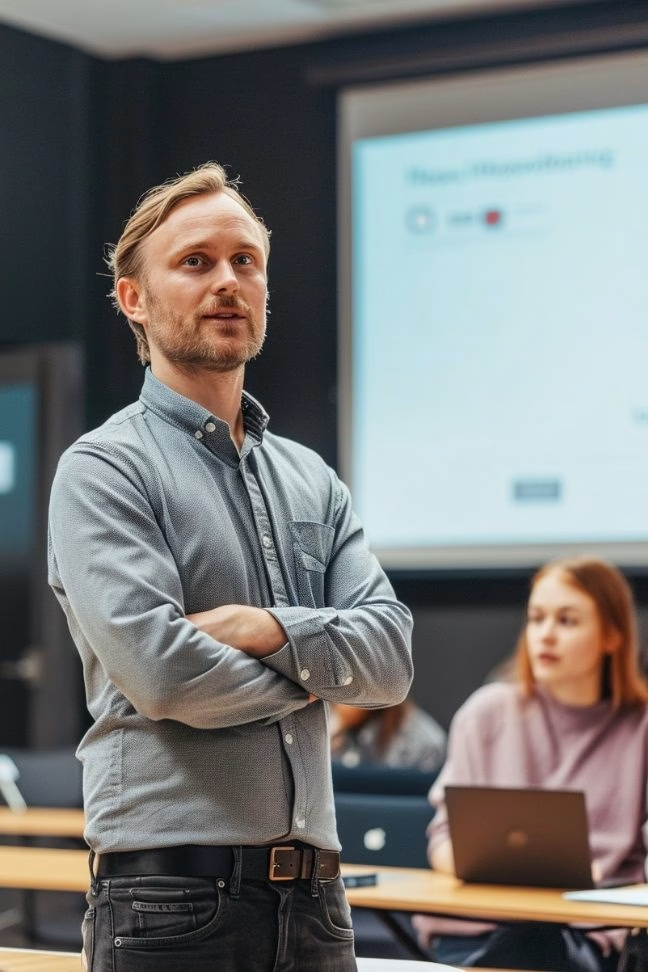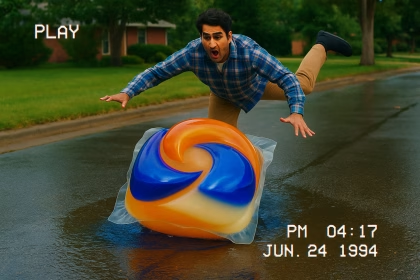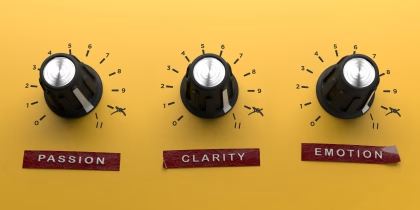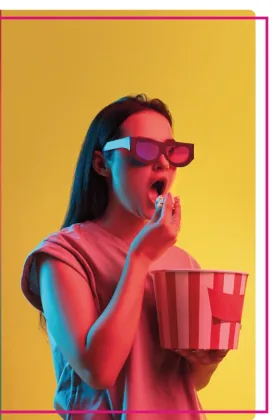What once was reserved for the graduate level is now making its way to the undergraduate classroom at Loyola University Chicago’s Quinlan School of Business. In Professor Dinko Bačić’s course, juniors and seniors are conducting advanced biometric research with real-world applications, culminating in an impressive seven IRB-approved research papers, all within a single semester. Through the integration of biometric research powered by iMotions human behavior research platform, the university’s “Analytical Decision Making” course has transformed into an engaging, publishing powerhouse.
Professor Bačić is a firm believer in experiential learning. Once based solely on publicly available secondary data, the course now integrates cutting-edge biometric technologies such as eye tracking, GSR, and facial expression analysis, introducing undergraduate students to the vast potential of physiological data and its implications for business decision-making.
“I wanted to bring undergraduates closer to the concept that there is another data type that they haven’t been exposed to,” Professor Bačić explains. “And I believe that the big data we see now is nothing compared to what will come in the future when we start harnessing physiological data and working with it.” Algorithm-based big data like Google Analytics are great at seeing what choices are made, but don’t provide a deeper look at the subconscious processes that impact decision-making and human behavior. The future will require leveraging biometric data to provide those insights.

In just one class, students were up and running on iMotions platform, experimenting with data collection using various biometric technologies. Within a week they were setting up study designs. By the semester’s end, they were presenting their research and drafting manuscripts for submission to academic journals. The flexibility and accessibility of iMotions allow students to explore research topics that were timely, and truly mattered to them on a personal level. For example:
- “The Difference in Excitement While Watching Male vs. Female Athletes:” Which aims to understand if viewers genuinely find men’s sports more exciting (explaining the higher viewership), or if social conditioning plays a bigger role.
- The Color Conundrum: Comparing perceptions of blue and pink.
- TikTok Takeover: Analyzing the effectiveness of different video styles on the popular platform.
- Subtitles or Bust?: Examining the impact of subtitles on how we watch streaming content, focusing on Netflix’s “The Crown”
- When ‘Good Enough’ is Good Enough: Apple vs Huawei: Decision making under cognitive pressure.
- The Brighter Side of Negative Videos: Exploring the complex relationship between videos’ emotional valence, human empathy, and willingness to engage in the context of human rights.
- “Positivity Effect’ Revisited: Assessing the impact of individuals shifting from focusing on negative social media posts in youth to preferring positive posts later in life.
“They are doing things not just because of the class, but because they’re invested and believe in their project,” noted Professor Bačić. This experiential learning approach fosters a sense of ownership and engagement, propelling students beyond the confines of traditional academia.
“I believe by taking this class I have differentiated myself and has put me in a position to be a competitive candidate in my field. The increase of data analytics throughout the business world has been at its highest demand than ever and having done research such as this has provided me invaluable insights into today’s data-driven landscape,” business honors student Adnan Aldaas said.
By harnessing the power of user-friendly biometric research tools and fostering a passion for discovery, Professor Bačić’s course has redefined the boundaries of what students can achieve in a single semester – and set students up for future success, even reshaping some students’ future trajectories. “This class has some students now considering going into research,” Bačić claimed. The skills acquired in just weeks provide students with a competitive edge in the job market. “They will stand out in the marketplace…interviews with recruiters will be completely different.”

In fact, one of Bačić’s students is even leveraging her research for law school interviews as a way to differentiate and position herself as a top candidate. “This was certainly a crowning achievement for my academic career but it also equipped me with a unique skill set that I can use to be more competitive in the workforce especially in positions with data visualization, research, and strategy,” she expressed.
“These students are more than prepared to excel in the job market – they are poised to shape the future of business and research itself.”
iMotions EduLabs
Where academia meets application
- Engage students with hands-on research experience
- Expand research with cutting-edge technology
- Encourage collaboration and innovation on campus
- Explore new opportunities to connect with your community







